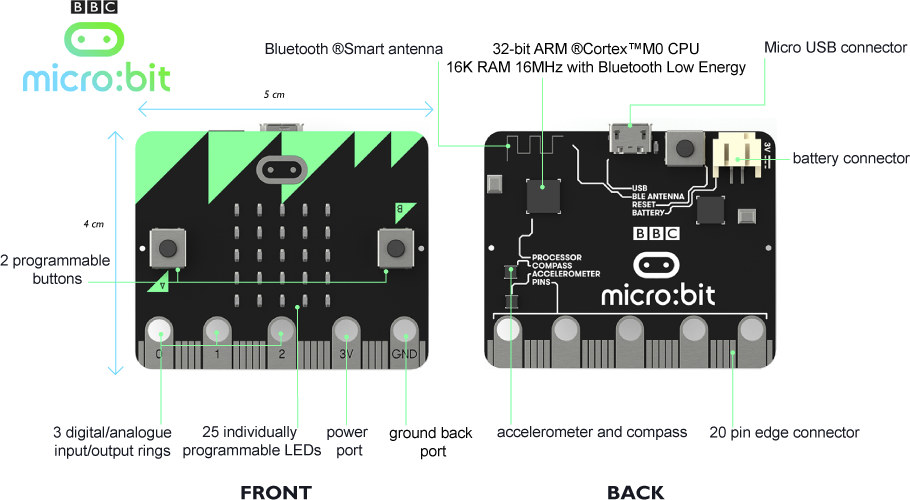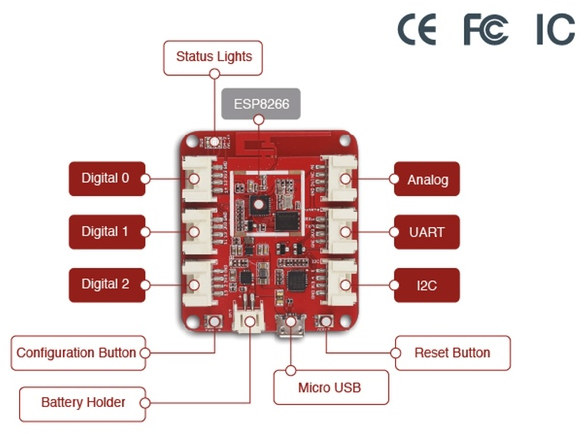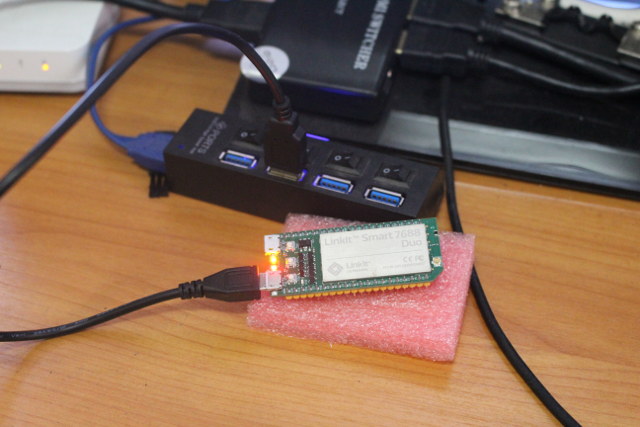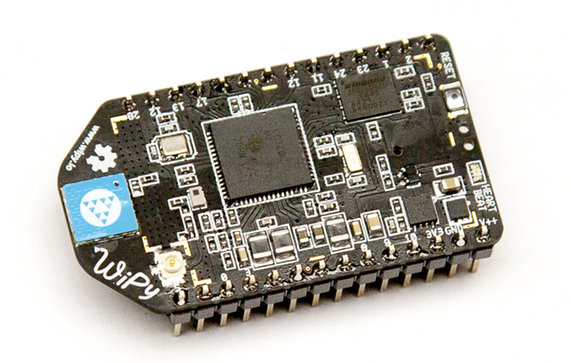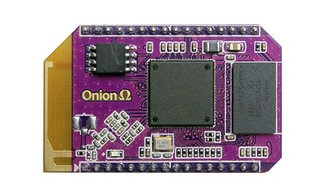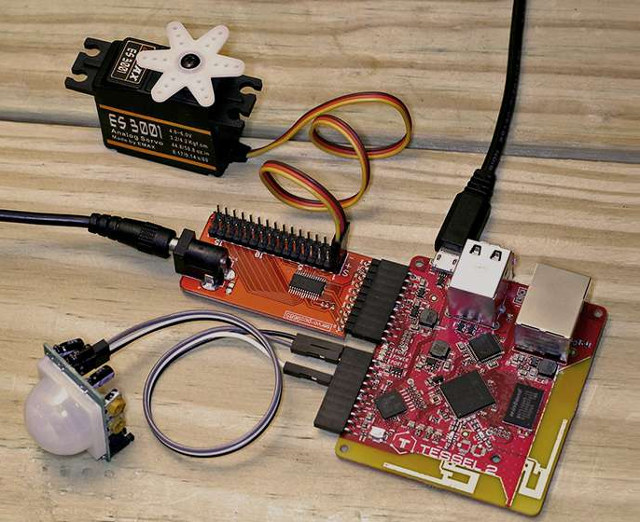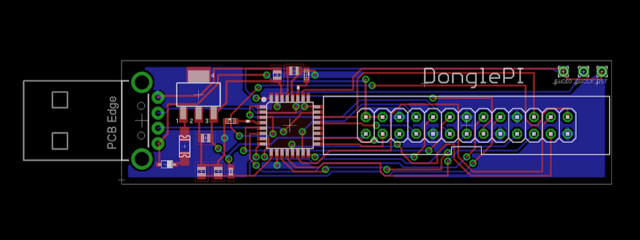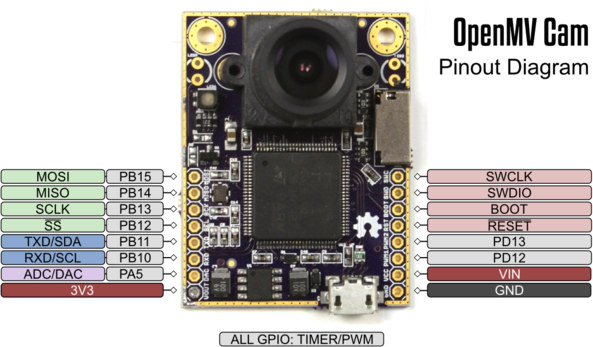After several delays, BBC is now giving free Micro:Bit Bluetooth LE enabled boards to UK students with the goal of getting them interested in coding and electronics in a way that’s even easier and cheaper than using a Raspberry Pi board. Micro:bit specifications: MCU – Nordic nRF51822 Bluetooth SoC based on Cortex M0 core @ 16MHz with 16KB RAM 2x user buttons, 1x reset button 25x red user LEDs in a 5×5 matrix Connectivity – Bluetooth LE Sensors – Compass, magnetometer, accelerometer USB – 1x micro USB port for port and programming Expansion – 20-pin edge connector, 5x “rings” for 3V, GND, and 3 digital/analog I/Os Power – 5V via USB or battery port to connect two AAA batteries Dimensions – 4cm x 5cm There are four ways to “code” the board: Code Kingdoms JavaScript graphical ‘drag and drop’ and text-based programming, Microsoft Block Editor graphical, drag and drop code […]
Wio Link is an ESP8266 Board Designed to Make IoT Projects Easier (Crowdfunding)
There are already plenty of board or modules based on Espressif ESP8266 WiFi SoC, but if you don’t like soldering, or would rather avoid breadboards and some cables for your or your kids’ projects, Wio Link may be interesting, as all you need to is to connect Grove modules required for your applications to get started, and Seeed Studio also took care of the low level software part and a drag-and-drop mobile app is provided, so software programming has been made easy too. Wio Link hardware specifications: SoC – Espressif ESP8266EX Tensila SoC Storage – 4MB flash Connectivity – 802.11b/g/n WiFi, with WEP/TKIP/AES encryption support Expansion – 6x Grove connectors: 3x digital, 1x analog, 1x UART and 1x I2C (3.3V I/Os) Power Supply 5V via micro USB port 3.4 ~ 4.2V via external battery Output DC Current – 1000mA MAX Charge Current: 500mA MAX Dimensions – 55mm*48mm Weight – 26g […]
Quick Start Guide for LinkIt Smart 7688 (Duo) Board
Mediatek Labs has announced LinkIt Smart 7688 development boards powered by Mediatek MT7688 WiSoC earlier today, but I was selected for a close beta several weeks before the launch, and I’ve had time to play a little with the boards, so today I’ll report my experience getting started with LinkIt Smart 7688 amd 7688 Duo by writing a Quick Start Guide showing how to setup the boards, upgrade firmware, access the serial console, run “Blink LED” sample applications with Python and JavaScript, as well as the Arduino IDE, and connect to the Internet. Initial Setup You’ll only need a micro USB cable and a computer with WiFi and USB ports to get started with the board. The green LED (top) for the MCU will turn on immediately, while the red LED (bottom) for WiFI will blink once, and only turn on continuously after 5 seconds, and within 30 seconds after […]
WiPy Wi-Fi Board for IoT Runs MicroPython on Texas Instruments CC3200 (Crowdfunding)
If you’ve interested in connecting devices via Wi-Fi, you’re being spoiled as “Internet of things” boards keeps getting designed and produced. The latest board with WiPy, a small board powered by Texas Instruments CC3200, running MicroPython, and consuming less than 1mA in suspended mode with Wi-Fi connected. WiPy specifications: MCU – TI CC3200 ARM Cortex-M4 @ 80 MHz with 256KB RAM, Wi-Fi and TCP/IP stack Storage – 2MB flash Connectivity – WiFi 802.11b/g/n 16Mbps (AP, Station and WiFi-Direct), on-board antenna and u.FL connector Expansion – 2x 14-pin headers (2.54mm pitch) with Up to 25 GPIOs 2x UART, SPI, I2C, I2S, and SD card 3×12 bit ADCs Others 4×16 bit timers with PWM and input capture RTC Hash and encryption engines: SHA, MD5, DES, AES Reset switch, heartbeat LED Power Supply – 3.6 – 5.5V DC input; 3.3V output up to 250mA Power Consumption – Active: 14 mA; Suspended (Wi-Fi connected): […]
Onion Omega is an Atheros AR9331 Wi-Fi Module Supporting Various Docks and Add-on Boards (Crowdfunding)
There are so many inexpensive Wi-Fi modules running Linux that it would be easy to discard Onion Omega as yet another Wi-Fi module based on Atheros AR9331 WiSoC. However, the developers have tried to bring some added value by making programming easier for web developers, integrating it with a cloud platform (free for non-commercial use), and providing basicor Arduino dock, and add-on boards for Ethernet, OLED, Relay… to make building hardware projects easier too. Let’s go through the hardware first, starting with the module specifications: SoC – Atheros AR9331 400MHZ MIPS 24K System Memory – 64MB DDR2 400MHz Storage – 16MB Flash Connectivity – 10/100 Mbps Ethernet + 802.11b/g/n Wi-Fi up to 150Mbps with PCB antenna w/ uFL connector I/Os – 18 GPIOs USB – 1x USB 2.0 Power Supply – 3.3V; Typ. consumption: 0.6W Dimensions – 28.2mm x 52mm (1.1″ x 2.0″) Since this type of module is not […]
$35 Tessel 2 IoT Board Features Atmel SAMD21 MCU and Mediatek MT7620n WiSoC
Tessel is a Wi-Fi IoT board based on NXP LPC1830 Cortex M3 MCU and Texas Instruments CC3000 modules, that’s designed to bring embedded development to web programmers with a system that can be programmed with JavaScript and Node.js. At the time of the crowdfunding campaign in 2013, the board was available with external modules (Relays, sensors, Bluetooth LE…) for $100 and up, but now Technical Machine, the company behind the project, has announced Tessel 2 combining Atmel SAMD21 Cortex M0+ to control I/O and Mediatek MT7260n for Wi-Fi connectivity, still programmable with JavaScript ot Node.js. Tessel 2 specifications: MCU – Atmel SAMD21G14A-MU Cortex M0+ MCU @ 48MHz with 16KB SRAM and 2KB Flash SoC – Mediatek MT7260n MIPS24KEc Wi-Fi SoC @ 580 MHz System Memory – 64MB DDR2 Storage – 32MB flash for firmware (OpenWRT) Connectivity – 10/100M Ethernet, and Wi-Fi 802.11 b/g/n with dual PCB antennas USB – 2x […]
DonglePi is a USB Dongle with a Raspberry Pi Header for your PC
While the newer Raspberry Pi A+, B+ and B2 boards feature the new 40-pin connector, the Raspberry Pi boards Model A and B have a 26-pin expansion header, but both are use to access GPIOs, UART, SPI, I2C and interface with external hardware, and many add-ons boards have been developed for the Raspberry Pi. But what if you’d like to use R-Pi add-ons board on your PC, or instead you are developing your own add-on board, but would like to do so directly on your PC for convenience? DonglePi is the answer. It’s a small USB dongle with Atmel SAMD21 MCU and a 26-pin Raspberry Pi compatible header, that you could use connect to your Android/Linux/Windows PC to play with GPIO, I2C, SPI, Serial, PWM just like on a Raspberry Pi, and using RPi/GPIO or smbus Python libraries for programming. The project is still in development, and so far most […]
OpenMV is an Open Source Hardware VGA Camera Controllable with Python Scripts (Crowdfunding)
Recently I’ve seen some activity about tiny cameras for makers, including Linux based SinoVoIP BPI-D1 recording up to 720p30 videos, and an upcoming mini camera for VoCore Wi-Fi module. There’s now another project called OpenMV, and open source camera for machine vision applications based on STMicro STM32, recording up to VGA resolution at 20 fps, and controlled using Micro Python scripts. OpemMV camera specifications: MCU – STM32F427, 180MHz, 225 DMIPS, 256K SRAM, 2M Flash, DMA/FPU/DSP/DCMI/SDIO/2D Acceleration Camera – 2MP OV2640 sensor with interchangeable M12 lens, 2x IR LEDS Storage – uSD interface: SDIO (4-bit mode) Expansions – 2x headers with USART, SPI, I2C, PWM, ADC/DAC, GPIOs, PWM and power signals USB – micro USB 2.0 Full Speed port Power Supply – 5V via USB; Current draw is approximately 140mA, steady state Dimensions – 4.57 x 3.56 cm The camera can be controlled using (Micro) Python scripts. with the project’s OpenMV […]


